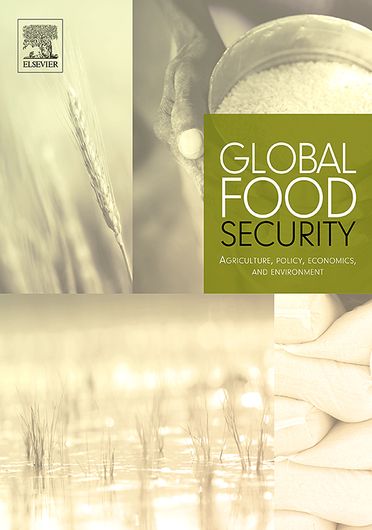Climate-related hazards and Indian food supply: Assessing the risk using recent historical data
Abstract
Climate-related hazards can lead to agricultural losses and affect local and wider food supply via food trade. This study estimates the potential for adverse effects of climate hazards on food supply across Indian States and Union Territories (hereafter ‘states’) by quantifying climate hazard risks. Risks were estimated using the most recent data available on hazard presence, vulnerability, and volume of per capita food supply that is exposed to hazards. Historical (2000–2020) climatological and geological data sourced from meteorological stations and satellite imagery were used to estimate the state-level presence of eight climate-related hazards (droughts, forest fires, floods, extreme rainfall, landslides, cyclones, extreme temperatures, sea level rise). For each state and hazard type, we distinguished between risk to food supply produced in the state and the risk to food supply imported from other states. The source of food supply was estimated from a supply and demand balance model for 30 major food items that uses government data from 2011–12. We found that climate hazard risks to food supply vary across states and by hazard type. The largest climate hazard risks to state food supply are in Bihar, Madhya Pradesh, and Assam, where the majority of risk is to locally produced supply. Food supply in each state is at risk to all eight climate hazards via food imports from other Indian states. For 14 states, the climate hazard risk is greater for imported food supply than for locally produced supply. Just five states contribute to more than half of the climate hazard risk in interstate food trade. The findings indicate that climate-related hazards in Indian states could have potentially adverse effects on national food supply, affecting both local production and interstate trade. For policy-makers, these climate hazard risks identify potential priorities for enhancing food system resilience to mitigate impacts on local and national food security.

